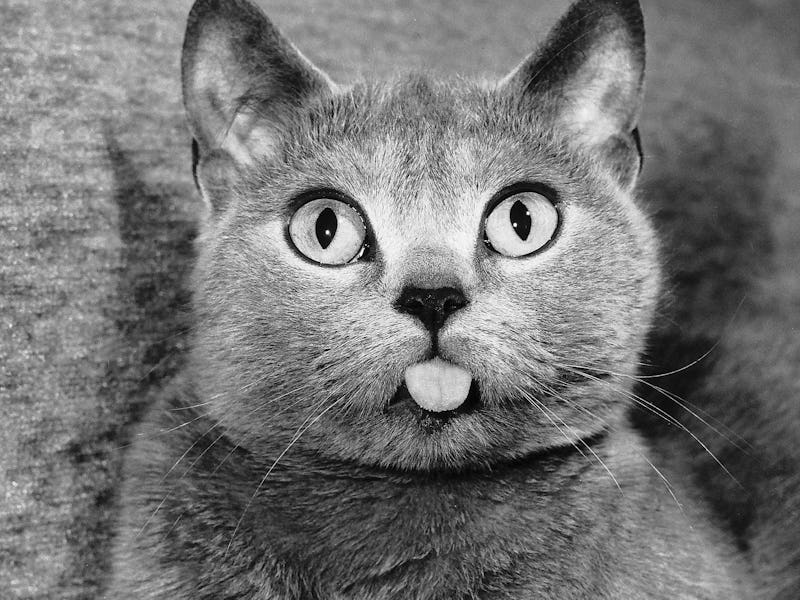Study finds a link between being a cat person and improved mental health
People most likely to be excited about cats displayed a key personality trait.

Go to any college campus during finals week, and you may come across a delightful sight: stressed-out, over-caffeinated university students petting dogs. Technically known as animal-assisted interventions, these light-hearted interactions are scientifically shown to provide at least short-term relief. With student mental health worsening, a brief amount of time spent petting a dog — an act that engages the social brain — is viewed as an easily implementable strategy for addressing anxiety.
But why limit this to dogs, which comprise 86 percent of animal-assisted interventions? Patricia Pendry, a professor at Washington State University, had successfully included cats in her own institution’s animal-assisted interventions programs and was curious whether or not a study could measure student and staff’s reception to cats on campus. Pendry and her colleague, Joni Delanoeije, a postdoctoral researcher and lecturer at KU Leuven in Belgium, were especially interested in who would be excited about the cats. They decided to examine what factors increased a person’s openness toward interacting with the animal and whether personality traits played a role.
They conducted surveys of staff and students at Flemish institutions during the summer of 2020, searching for a link between personality and openness to cats. Generally, being a cat owner and identifying as female were associated with being excited about a cat on campus. But they observed a link related to how the person acted as well: people who significantly displayed the personality trait of emotionality were most interested and, in turn, more likely to experience the benefits of a feline visit.
These results were recently published in the journal Anthrozoös.
The psychological benefits of cats
A cat at the campus of Nuh Naci Yazgan University in Turkey.
While the study didn’t examine why emotionality is linked to being interested in cats, Pendry does have some ideas about why this may be the case.
“It may be that individuals who experience strong feelings in response to stimuli may experience strong emotions in response to the very subtle clues that cats tend to give off,” she says. This “may enhance their enjoyment when interacting with cats compared with individuals who need a lot more powerful stimuli to experience a strong emotional response — which may be where your average dog comes in.”
While evaluating who might be the most excited about cats may seem like fluffy research, there are established links between being around pet cats and well-being.
“Cats have the unfortunate reputation of being aloof and finicky.”
Brain scans show that being around cats activates the prefrontal cortex of cat owners, and being around their pets is shown to have a calming effect. Cats can provide fulfilling emotional support and can alleviate negative moods so much so that, in this way, they are comparable to a human partner. These studies underscore why spending time with animals, in general, isn’t just a frivolous act — it’s time spent improving your mental health.
The reason why cats aren’t already a fixture of animal-assisted interventions may have more to do with a bad reputation than anything else.
“It seems that cats have the unfortunate reputation of being aloof and finicky, both in terms of who they choose to interact with, as well as their ability to adjust to different environments,” says Pendry. “I personally believe it is more accurate to describe cats as ‘discerning’ and ‘thoughtful,’ and I would hope that we can respect that trait.”
There are plenty of cats who actively seek out opportunities to engage with humans. When this happens on a university campus, Pendry has seen “people flock to them.” It’s important to select the kinds of cats who enjoy these interactions — and who can cope with being transported to the event — but the same is true of dogs, she adds.
Next, Pendry is interested in examining whether or not cats have stress-reducing effects when interacting with students and staff and under what conditions. And in the meantime, it’s comforting to remember the unique effect animals have on us. Now I need to find a cat to pet.